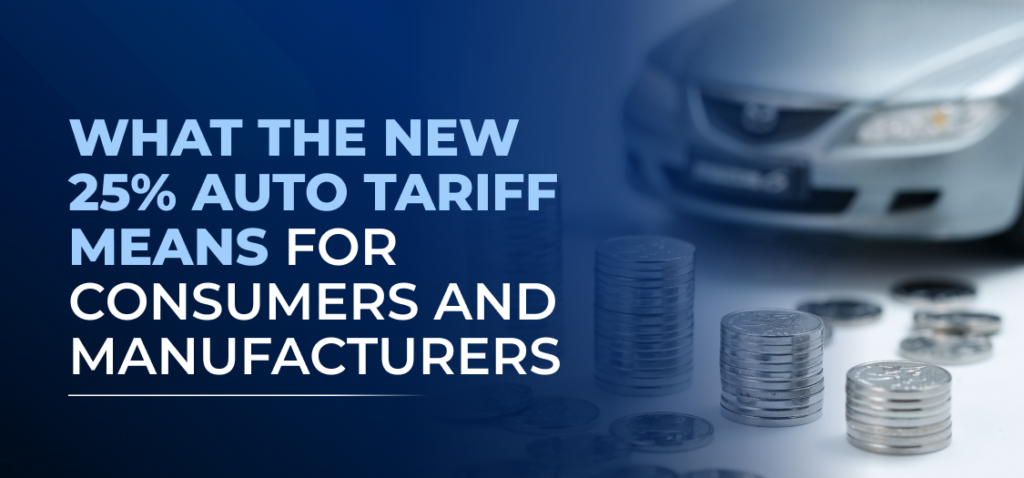What the New 25% Auto Tariff Means for Consumers and Manufacturers

President Trump announced on March 26 that he will impose a 25% tariff on imported cars and car parts, effective next week, using his national security powers to justify the action. “I think our automobile industry will flourish like never before,” Trump said in remarks from the Oval Office. This new measure is expected to significantly reshape the U.S. auto market, with wide-ranging effects on manufacturers, consumers, and insurers alike. With the tariffs set to go into effect on April 3, the market is preparing for changes that could influence vehicle prices, production strategies, and international trade dynamics; while critics and industry leaders are bracing for the economic impact, which could ripple across international trade relations and consumer prices. Even now, effects are already being felt- carmaker stocks dropped by 3-7% as the industry reacted to the news.
The tariffs will go into effect on April 3 and apply to both finished cars and trucks shipped into the United States, as well as imported parts. These tariffs will impact foreign brands, as well as American companies like Ford Motor and General Motors, which manufacture many of their vehicles in Canada and Mexico.
Nearly half of all vehicles sold in the United States are imported, and nearly 60% of the parts in vehicles assembled in the U.S. come from abroad.
Trump emphasized his commitment to the policy, stating, “This is permanent.”
Cost estimates suggest that prices for imported vehicles could rise by $4,000 to $12,000.
Many in the industry had assumed that auto parts from Taiwan would be exempt from the tariffs. However, as I pointed out earlier, the U.S. does not recognize Taiwan as a sovereign nation but as a province of China. I reasoned that if tariffs were imposed on the People’s Republic of China, they would likely be extended to Taiwan as well. The president confirmed this when he indicated that the tariffs would apply to all foreign-made auto parts. We previously calculated that the cost per repairable claim would increase by $180-250. Additionally, the overall impact on the private passenger insurance business is estimated to exceed $11 billion annually, factoring in the higher repair costs and the impact on total loss claims.
Canadian Prime Minister Mark Carney stated on Wednesday that President Trump’s auto tariffs are a “direct attack” on Canada and noted that the trade war is also hurting Americans, with American consumer confidence now at a multi-year low. The top exporters of vehicles are similar to the leading auto parts exporters, with Mexico far surpassing other countries, followed by Japan, South Korea, Canada, and Germany.
This week, Trump also floated the idea of a “secondary tariff” of 25% on goods from any country buying oil or gas from Venezuela.
The White House has provided few details about what to expect next week when Trump announces reciprocal tariffs.
